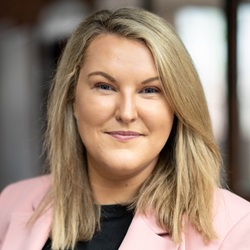
Appiah: Much smaller margin of error for progressing in my career than my white peers
A group of 17 City law firms, including seven of the top 10, have signed a ‘race fairness commitment’ to improve recruitment and retention of black, Asian and minority ethnic (BAME) lawyers.
It uses data-driven techniques to identify areas of improvement in firms’ culture and hierarchy.
The commitment includes detailed targets on the interview process and diversity data publication, along with a pledge to ensure that BAME lawyers are “as able to be themselves at work” as other staff.
Among the targets are that BAME job applicants are as likely to be interviewed and offered a role as other candidates, and as likely to be promoted.
BAME lawyers must be paid the same as their white counterparts and remain at the firm for as long.
The law firms have also committed to publishing interview success rates for BAME and other candidates, along with promotion and retention rates.
Firms agreed to “champion junior ethnic minority talent” by monitoring outreach programmes to ensure they include a minimum proportion of BAME participants “at least in line with the local school and university age population”.
Every junior BAME member of staff must have access to a senior member of staff “with a view where possible to creating sponsorship, mentoring and reverse mentoring programmes”.
BAME lawyers must be able to “be themselves at work as white people”, so that “everyone can have authenticity of voice and culture – no more fitting in and no more being ‘othered’.”
Every year firms must publish an ethnicity equal pay analysis and an analysis of employee sentiment on the question ‘I can be myself at work’ – which will apply to all staff.
The law firms are also committed to ask in every exit interview “whether the person leaving has experienced or seen racism in the firm” and ensure that “at least once a year the firm tells all its staff that it has zero tolerance of racism”, if necessary sharing examples of how any incidents of racism have been handled.
The initiative was developed in partnership with diversity recruitment specialist Rare, which is making the race fairness commitment and its guidance freely available to any employer.
The initial firms to sign up are: Allen & Overy, Ashurst, Bryan Cave Leighton Paisner, Clifford Chance, DWF, Dentons, Freshfields Bruckhaus Deringer, Herbert Smith Freehills, Hogan Lovells, Linklaters, Macfarlanes, Norton Rose Fulbright, Pinsent Masons, RPC, Slaughter and May, Travers Smith, and White & Case.
Roy Appiah, a senior associate at Clifford Chance and Rare alumnus, said that despite the firm being a “great place to work”, he was “never too far away from reminders that the firm and the industry, were not designed for people like you to rise to the top”.
Mr Appiah went on: “These reminders come in many forms, like having your security pass checked twice to enter work, or being invited to training about what leadership looks like where none of the dozen speakers look like you.
“Being one of the very few ethnic minority lawyers in a department, and seeing very few ethnic minority partners within the firm, showed me that there is a much smaller margin of error for progressing in my career than my white peers.
“So I’ve sometimes had to take the bass out of my voice. I’ve felt unable to express frustration, even when that frustration was justifiable.”
Mr Appiah said he used to feel cautious about leading, or taking on additional responsibilities, out of concern that any failing “would confirm that people like me do not belong”.
He continued: “As my career has progressed and I demonstrated to myself and to colleagues that I can do this, it is as though I have earned the right to be more of myself at work. And it is no coincidence that I am a better lawyer when I feel I can be myself.”
Raph Mokades, founder and managing partner of Rare, commented: “What seems possible in terms of racial justice has shifted this year, and the race fairness commitment is about real change.
“It’s a brave step for the law firms to take, as well as a necessary one. It goes beyond merely not discriminating, and it goes beyond the usual diversity and inclusion activities you see at many organisations.”














Leave a Comment